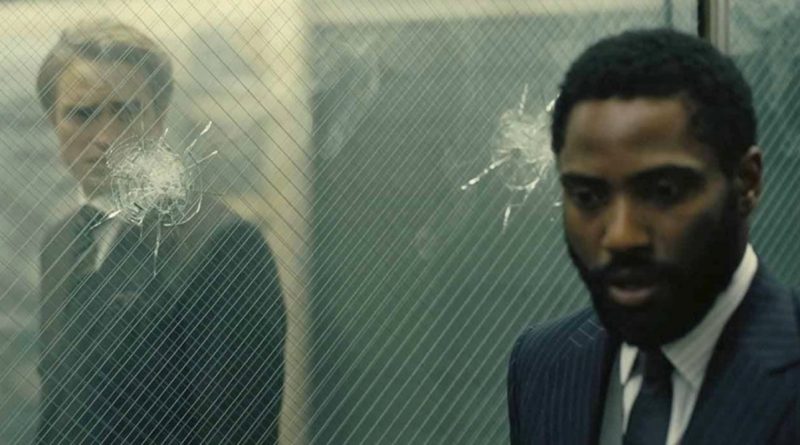
Fans of writer/director Christopher Nolan are not strangers to bent time, trippy constructs in physics, or highbrow filmmaking. Being a fan myself, I’ve loved all the elements we’ve grown to expect and enjoy in Nolan movies, beginning with Momento, and reaching its zenith with Interstellar. His new release Tenet has all those, and for a film that, as always with Nolan, uses practical effects and performers in real locations instead of blue screens, it is a technical and visual marvel. Unfortunately, all that wizardry can’t make up for the lack of character development and mental gymnastics required to buy into and stick with the story.
The word tenet is a palindrome, which is a clue I won’t elaborate on about the plot, but suffice to say there is a circularity to it, that fascinates a little and confounds a lot. The story involves a CIA agent (John David Washington) only ever referred to as “The Protagonist”, who finds himself working in a top secret organization called Tenet, and their whole raison d’être is to save the world from annihilation. The world apocalypse might come from a Russian oligarch with a galloping case of malignant narcissism and megalomania named Andrei Sator (Kenneth Branagh) who has discovered a dangerous way to mess with time. The Protagonist gets help from English operative Neil (Robert Pattinson) and finds entanglements in Kat (Elizabeth Debicki), Sator’s emotionally damaged wife. There are several other players in the story that allow memorable but fleeting supporting performances by Clémence Poésy, Michael Caine, and Aaron Taylor-Johnson.
For the complete review, visit AWFJ.org HERE.



